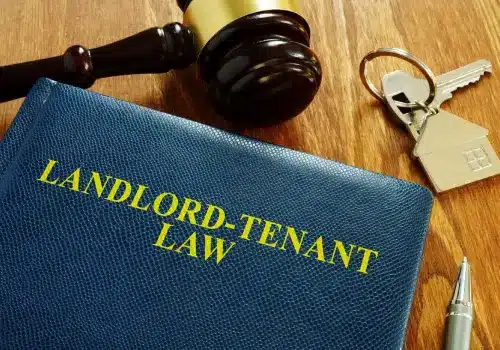+65 63232320
9am to 6pm
S.S. Dhillon
Founder
Mr S.S. Dhillon, the founder of Dhillon & Panoo LLC, graduated with an Honours Degree in Bachelor of Law from the University of London and was called to the English Bar in 1991. He began his legal career as an Advocate and Solicitor of the Supreme Court of Singapore in February 1993.
Dhillon’s 22 years in practice has seen him carve out a formidable reputation for himself within the legal community and beyond. Well renowned and held in high esteem, Dhillon is celebrated as one of the foremost criminal lawyers among his peers.
Dhillon has worked on such a wide array of cases, ranging from the mundane, straightforward run-of-the-mill cases to much more multifarious defense scenarios in the State and High Courts as well as many Court of Appeal cases. Be it the defense of simple theft cases or highly charged and explosive criminal cases, Dhillon expends equal commitment to all his clients. And it is this dedication that has seen him clinching critical acquittals in capital cases.
A self-made man, Dhillon lives his life to the fullest and his motto is to always be prepared to face any challenges that come his way.
Grateful for the opportunities life has handed him, Dhillon believes in paying it back many times over. Thus, despite his busy and hectic schedule, he makes sure that he uses what he’s learned and gained through his work to aid those who have no one to turn to. He contributes a significant portion of his time on the CLAS Pro Bono criminal cases, providing expert legal counsel to those who need it but do not have the means to acquire it.
Property Disputes, Landlord & Tenants
Legal Assistance for Tenancy Agreements
Tenancy Agreement Lawyer, Tenancy Dispute Lawyer, and Rental Dispute Lawyer in Singapore. We provide expert legal advice, contract review, and dispute resolution for landlords and tenants.
We have the expertise to draft Tenancy Agreements. These agreements could be for residential or commercial properties and we have acted for both landlords and tenants.
However, Property disputes often arise when the two parties involved in a Tenancy Agreement, the Landlord and the Tenant, cannot see eye to eye. Disputes also occur when joint owners have differences of opinions when it comes to the sale of a joint property, or regarding matters of “change of use”, renovation of a property or a multitude of issues that require a resolution.
We have acted for tenants against their landlord for failing to provide what was agreed in the Tenancy Agreement or the landlord who had unreasonably withheld the tenant’s deposit at the end of the lease.
Similarly, we have successfully acted on behalf of landlords against their tenants who have failed to honour their rental payments, as well as obtaining the necessary court orders to evict errant tenants who have violated their Tenancy Agreements by not paying rental.
License
A license constitutes a special permission to do something on, or with somebody else’s property which, if not for the license could be legally prevented or give rise to legal action in tort or trespass.
The licensee has no rights to assign the premises to a third party, nor is he able to sue trespassers or any persons for nuisance.
The Tenancy Agreement or Lease
A tenancy agreement or Lease Agreement is an agreement between the landlord and the tenant whereby the landlord has agreed to grant the tenant exclusive temporary ownership rights over a premises for an agreed sum of rent.
Tenancy agreements are set up at the beginning of a tenancy period and lists out the terms and conditions of the tenancy as well as responsibilities of both parties in order to avoid potential disputes. The Landlord and the Tenant are able to negotiate these terms before they enter into an agreement.
The agreement stipulates that the landlord must provide for terms that allow for the effective use of his premises and allows the tenant to occupy the premises freely and without external intrusions.
Terminating the tenancy
Either the landlord or the tenant may be able to terminate the agreement by giving notice to the other party within an appropriate period of time. This duration would have been agreed upon by both parties when the agreement was first drafted.
Typically, most Tenancy Agreement is for a fixed period and there is no termination clause.
As a tenant, you need to inform your landlord of your decision to end the agreement prematurely and obtain his consent. In such cases, a landlord may demand monetary compensation for the early termination of the contract.
Evicting Tenants
Failure to pay rent would constitute a breach of the tenancy agreement, in which case a landlord has the legal right to forfeit the agreement and re-enter the premises to evict his tenant.
Forfeiture
Typically, a landlord will effect forfeiture should the tenant constantly fail to pay rent despite numerous opportunities to do so. This means the landlord can either peaceably enter the premise on his own, or apply to the court to formally demand that his tenant exit the premises.
If his tenant refuses to submit to the demands, then the landlord has recourse to begin legal proceedings by having his solicitor issue a writ of summons for possession.
Landlord & Tenant Dispute Lawyers in Singapore
At Dhillon & Panoo LLC, we understand how complicated and stressful landlord and tenant disputes can be. Whether you are a property owner, a tenant, or a business leasing commercial premises, issues such as unpaid rent, eviction, tenancy breaches, or property damage can quickly escalate into legal conflicts. This is where the guidance of an experienced Tenancy Agreement Lawyer, Tenancy Dispute Lawyer or Rental Dispute Lawyer becomes essential. As a reputable Singapore Property Law Firm, we are committed to protecting your rights, resolving disputes effectively, and ensuring compliance with Singapore’s property laws. Our Property lawyers or Tenancy Lawyers provide clear advice and strategic solutions to help clients achieve favorable outcomes in landlord and tenant matters.

Understanding the Need for a Lawyer in Landlord & Tenant Disputes
Disputes between landlords and tenants are more common than many realize. While tenancy agreements are designed to protect both parties, disagreements often arise over rental arrears, repairs, early termination, or eviction procedures. Without proper legal guidance, these issues can result in financial loss, strained relationships, or even prolonged litigation. By engaging an experienced Tenancy Agreement Lawyer or Property dispute lawyer in Singapore, you ensure that your rights are safeguarded. A lawyer can help draft airtight tenancy agreements, negotiate fair terms, and represent you in dispute resolution or court proceedings. Whether you are a landlord seeking to recover unpaid rent, or a tenant facing an unfair eviction or unfair treatment by the Landlord, having skilled legal representation can make all the difference.
Free ConsultingOur Landlord & Tenant Legal Services
At Dhillon & Panoo LLC, our team of Landlord & Tenant Dispute Lawyers and property law specialists have extensive experience in handling tenancy-related matters. We provide a wide range of services to meet the needs of landlords and tenants alike.

Drafting & Reviewing Tenancy Agreements
A well-drafted tenancy agreement is the foundation of a strong landlord-tenant relationship. Our Tenancy Agreement Lawyer ensures that agreements are comprehensive, legally enforceable, and tailored to your unique situation. We review key clauses such as rental obligations, security deposits, maintenance responsibilities, termination rights, and dispute resolution mechanisms.
For commercial tenancy agreements, other issues may need to be protected as well, including ;
a) The allowed usage of the premises;
b) Have the intended usage of the premises been applied for and granted (i.e. in local terms it’s called “change of use” as a short form);
c) Whose duty is it to apply for the required licenses granting the tenant the right to carry out its intended business activities;
d) Or whose duty is it to apply for the change of use of the premises or permission from the authorities to use the premises for the tenants intended business usage.
Recovery of Unpaid Rent & Security Deposit Claims
Unpaid rent and disputes over security deposits are among the most frequent issues landlords face. Our Tenancy Dispute Lawyer Singapore assists in sending demand letters, negotiating settlements, and taking legal action if necessary to recover what is rightfully owed.
Eviction & Enforcement Proceedings
Eviction in Singapore must follow legal procedures to prevent potential counterclaims or disputes. Our Rental Dispute Lawyer provides guidance on lawful eviction processes, prepares necessary notices, and represents landlords in enforcement proceedings to secure vacant possession of their property.
Breach of Lease & Early Termination Issues
Both landlords and tenants may face challenges when leases are terminated prematurely. Our team advises on remedies for breach of contract, compensation claims, and negotiating amicable settlements to minimize disputes and financial losses.
Property Dispute Litigation & Mediation
When disputes cannot be resolved through negotiation, litigation or mediation may be necessary. As an experienced Property dispute law firm in Singapore, Dhillon & Panoo LLC represents clients in court proceedings as well as alternative dispute resolution forums. We aim to resolve matters efficiently, saving time and costs while securing fair outcomes.
Why Choose Us

Experienced Legal Professionals
With years of expertise as Singapore Property Lawyers, we provide strategic advice tailored to each client’s unique case.

Comprehensive Support
From drafting tenancy agreements to handling eviction, termination of tenancy agreements and litigation, we cover all aspects of landlord and tenant law.

Client-Focused Solutions
Our approach is practical, solution-driven, and always focused on protecting your rights and interests.

Proven Track Record
We have successfully assisted landlords, tenants, and businesses in resolving tenancy disputes in Singapore.

Clear & Transparent Guidance
We ensure clients fully understand their legal position and available options before taking any action.
Contact Us
📞 Call us today to schedule a consultation with a Tenancy Agreement Lawyer or Tenancy Dispute Lawyer Singapore.
📧 Email us for quick assistance.
📍 Visit our office for in-person legal guidance.
Our dedicated team is here to help landlords and tenants navigate disputes with confidence.
Frequently Asked Questions
What should be included in a tenancy agreement?
A tenancy agreement should include essential terms such as rental amount, payment schedule, security deposit details, maintenance responsibilities, termination clauses, licensing application obligations, dispute resolution procedures etc. Consulting a Tenancy Agreement Lawyer ensures the agreement is legally sound and fair to both parties.
What happens if a tenancy agreement is breached?
If either party breaches the tenancy agreement, legal consequences may follow. For landlords, this may mean eviction rights or claims for unpaid rent. For tenants, it could involve loss of security deposits or financial liability. A Tenancy Dispute Lawyer can advise on remedies and represent you in negotiations or court.
How can a landlord recover unpaid rent legally?
Landlords can issue formal demand letters, commence legal proceedings, and thereafter apply for enforcement measures to recover unpaid rent. A Rental Dispute Lawyer ensures that recovery actions are taken in accordance with Singapore law to avoid counterclaims or complications.
